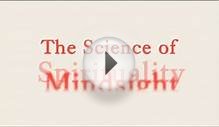
 Reference:
Reference:
A scientific theory is a specific type of theory used in the scientific method. The term "theory" can mean something different, depending on whom you ask.
"The way that scientists use the word 'theory' is a little different than how it is commonly used in the lay public, " said Jaime Tanner, a professor of biology at Marlboro College. "Most people use the word 'theory' to mean an idea or hunch that someone has, but in science the word 'theory' refers to the way that we interpret facts."
The process of becoming a scientific theory
Every scientific theory starts as a hypothesis. According to the Merriam-Webster Dictionary, a hypothesis is an idea that hasn't been proven yet. If enough evidence accumulates to support a hypothesis, it moves to the next step — known as a theory — in the scientific method and becomes accepted as a valid explanation of a phenomenon.
Tanner further explained that a scientific theory is the framework for observations and facts. Theories may change, or the way that they are interpreted may change, but the facts themselves don’t change. Tanner likens theories to a basket in which scientists keep facts and observations that they find. The shape of that basket may change as the scientists learn more and include more facts. "For example, we have ample evidence of traits in populations becoming more or less common over time (evolution), so evolution is a fact but the overarching theories about evolution, the way that we think all of the facts go together might change as new observations of evolution are made, " Tanner told Live Science.
Theory basics
The University of California, Berkley defines a theory as "a broad, natural explanation for a wide range of phenomena. Theories are concise, coherent, systematic, predictive, and broadly applicable, often integrating and generalizing many hypotheses."
Any scientific theory must be based on a careful and rational examination of the facts. Facts and theories are two different things. In the scientific method, there is a clear distinction between facts, which can be observed and/or measured, and theories, which are scientists’ explanations and interpretations of the facts.
An important part of scientific theory includes statements that have observational consequences. A good theory, like Newton’s theory of gravity, has unity, which means it consists of a limited number of problem-solving strategies that can be applied to a wide range of scientific circumstances. Another feature of a good theory is that it formed from a number of hypotheses that can be tested independently.
The evolution of a scientific theory
Theories are foundations for furthering scientific knowledge and for putting the information gathered to practical use. Scientists use theories to develop inventions or find a cure for a disease.
Some believe that theories become laws, but theories and laws have separate and distinct roles in the scientific method. A law is a description of an observed phenomenon that hold true every time it is tested. It doesn't explain why something is true; it just states that it is true. A theory, on the other hand, explains observations that are gathered during the scientific process. So, while law and theory are part of the scientific process, they are two very different aspects, according to the National Science Teachers Association.
Additional reporting by Kim Ann Zimmermann, Live Science Contributor
Additional resources
Author Bio
Alina Bradford
Alina Bradford is a contributing writer for Live Science. Over the past 16 years, Alina has covered everything from Ebola to androids while writing health, science and tech articles for major publications. She has multiple health, safety and lifesaving certifications from Oklahoma State University. Alina's goal in life is to try as many experiences as possible. To date, she has been a volunteer firefighter, a dispatcher, substitute teacher, artist, janitor, children's book author, pizza maker, event coordinator and much more.INTERESTING VIDEO











